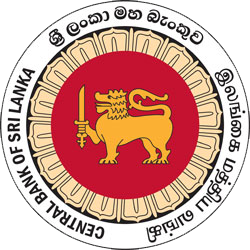Sri Lanka surprises with 250 bps rate cut, signals rebound from crisis
"Policy interest rates reduced in view of the faster deceleration of inflation, benign inflation outlook and the easing of BOP (balance of payment) pressures, thereby reinforcing the rebound of the economy," the CBSL said. "The rate cuts are expected to accelerate the normalisation of the interest rate structure, broadbase economic activity and ease pressures in financial markets helping steer the economy towards a rebound phase." After the announcement, Sri Lanka's rupee currency rose to its highest since April 2022 at 289 to the dollar while three and six-month government treasury bills eased around 5 percentage points each to 19-20%.

- Country:
- Sri Lanka
Sri Lanka's central bank cut its key interest rates by 250 basis points on Thursday amid easing inflationary pressures, signalling that the South Asian nation was emerging from a devastating financial crisis and ready to focus on growth. The Central Bank of Sri Lanka (CBSL) cut its standing deposit facility rate and standing lending facility rate to 13% and 14%, respectively, from 15.5% and 16.5% previously.
Most analysts had expected the bank to keep rates steady. The rates are now at their lowest since March 2022, at the start of the crisis. "Policy interest rates reduced in view of the faster deceleration of inflation, benign inflation outlook and the easing of BOP (balance of payment) pressures, thereby reinforcing the rebound of the economy," the CBSL said.
"The rate cuts are expected to accelerate the normalisation of the interest rate structure, broadbase economic activity and ease pressures in financial markets helping steer the economy towards a rebound phase." After the announcement, Sri Lanka's rupee currency rose to its highest since April 2022 at 289 to the dollar while three and six-month government treasury bills eased around 5 percentage points each to 19-20%. The benchmark Colombo Stock Exchange index rose 1.3% to lift away from five-month lows.
The rate cut comes after the key Colombo Consumer Price Index rose 25.2% on year in May from 35.3% in April, reducing some stress on the crisis-hit economy which had crumpled under soaring inflation and its worst financial crisis in over seven decades. The index peaked at a 69.8% year-on-year surge in September last year. The national inflation rate was at 33.6% in April, easing from 73.7% in September.
POSSIBLE END Analysts said with the CBSL having successfully dealt with inflationary pressures, it was critical to now boost the economy.
"This can possibly be seen as an end to the crisis," said Sanjeewa Fernando, a senior vice president at Asia Securities in Colombo. "Our projection is inflation will end the year at 5%. Having dealt with inflationary pressures, CBSL is now shifting gears to spurring growth."
The International Monetary Fund (IMF) has set Sri Lanka an inflation target of 15.2% for this year but the CBSL is eyeing a more ambitious target of single digit inflation by September. "Headline inflation is forecast to reach single digit levels in early Q3-2023, and stabilise around mid-single digit levels over the medium term," the bank said.
Thirteen out of the fifteen analysts and economists polled by Reuters had expected the central bank to hold benchmark rates steady at its fourth policy rate announcement this year. The central bank raised rates by a record 950 basis points last year to tame inflation and by 100 bps on March 3 this year.
"If the domestic debt restructuring can be finalised as soon as possible then we may see further rate cuts on the cards, perhaps as early as August, bringing down rates at an accelerated pace," said Dimantha Mathew, head of research at Colombo-based investment bank First Capital Holdings. Sri Lanka secured a $2.9 billion bailout from the IMF in March and aims to complete debt restructuring talks by September, coinciding with the first review by the lender.
The IMF expects GDP to contract 3% this year after a 7.8% contraction last year. The CBSL said it expects domestic economic activity to rebound gradually from late 2023. The central bank said faster deceleration of inflation and the lower probability of demand pressure during the economic rebound "creates space for a gradual policy relaxation in the period ahead".
(This story has not been edited by Devdiscourse staff and is auto-generated from a syndicated feed.)









